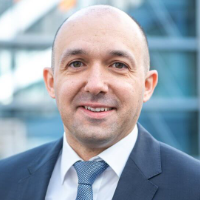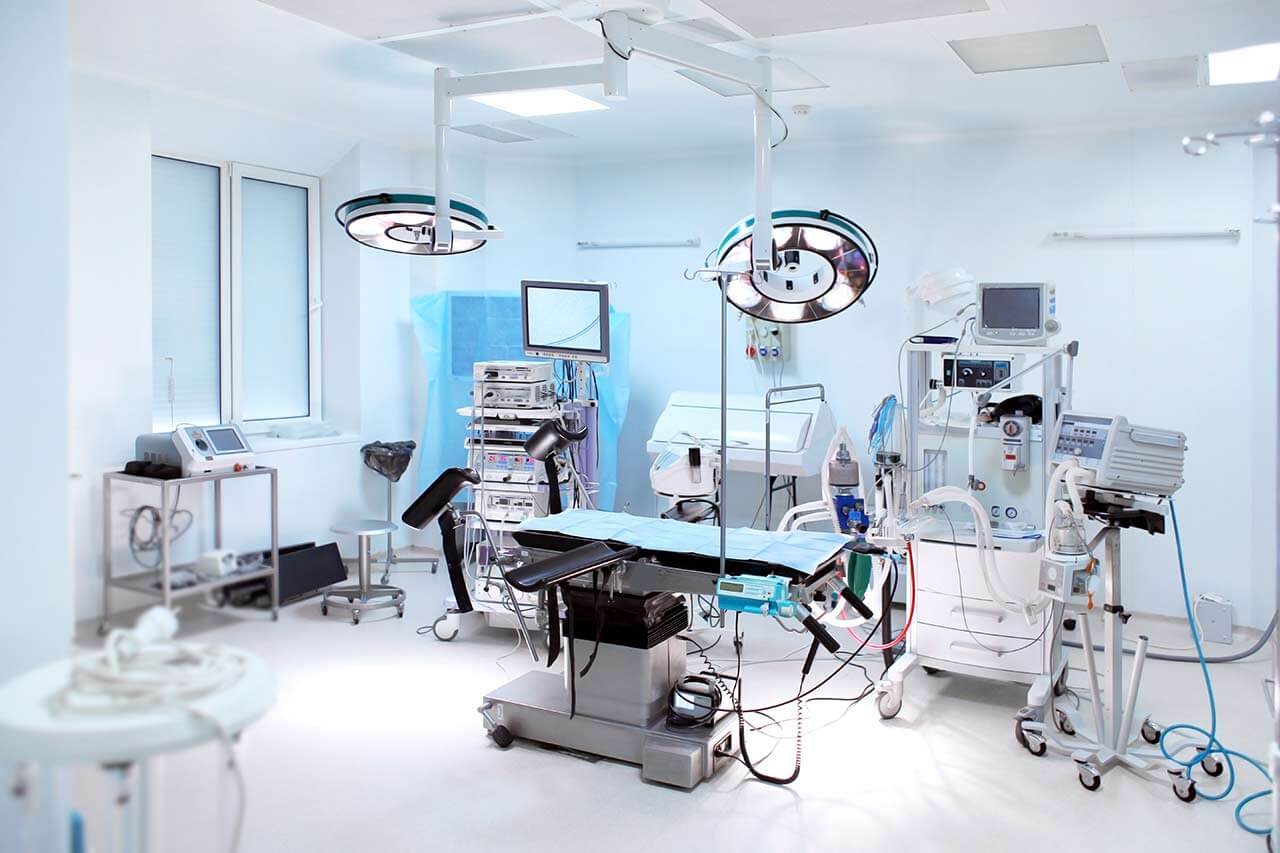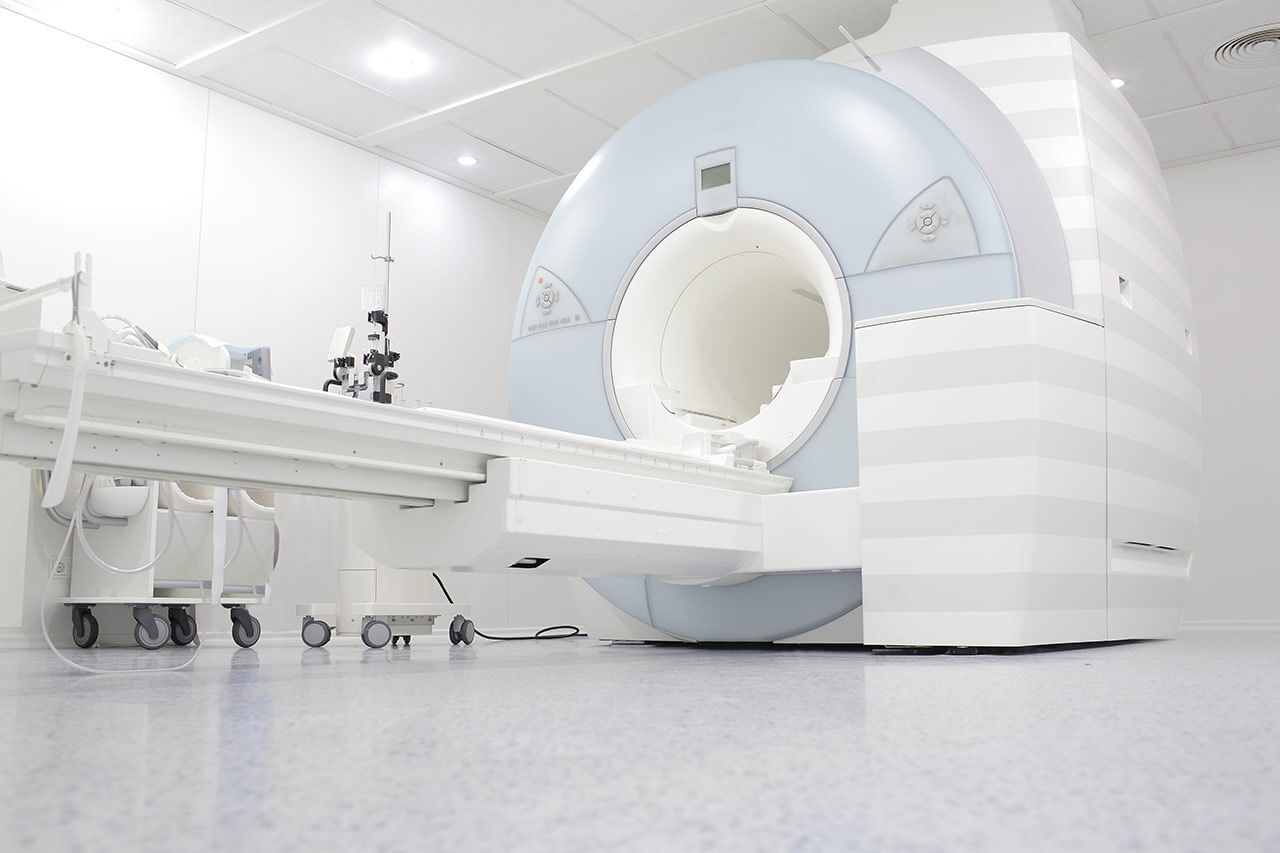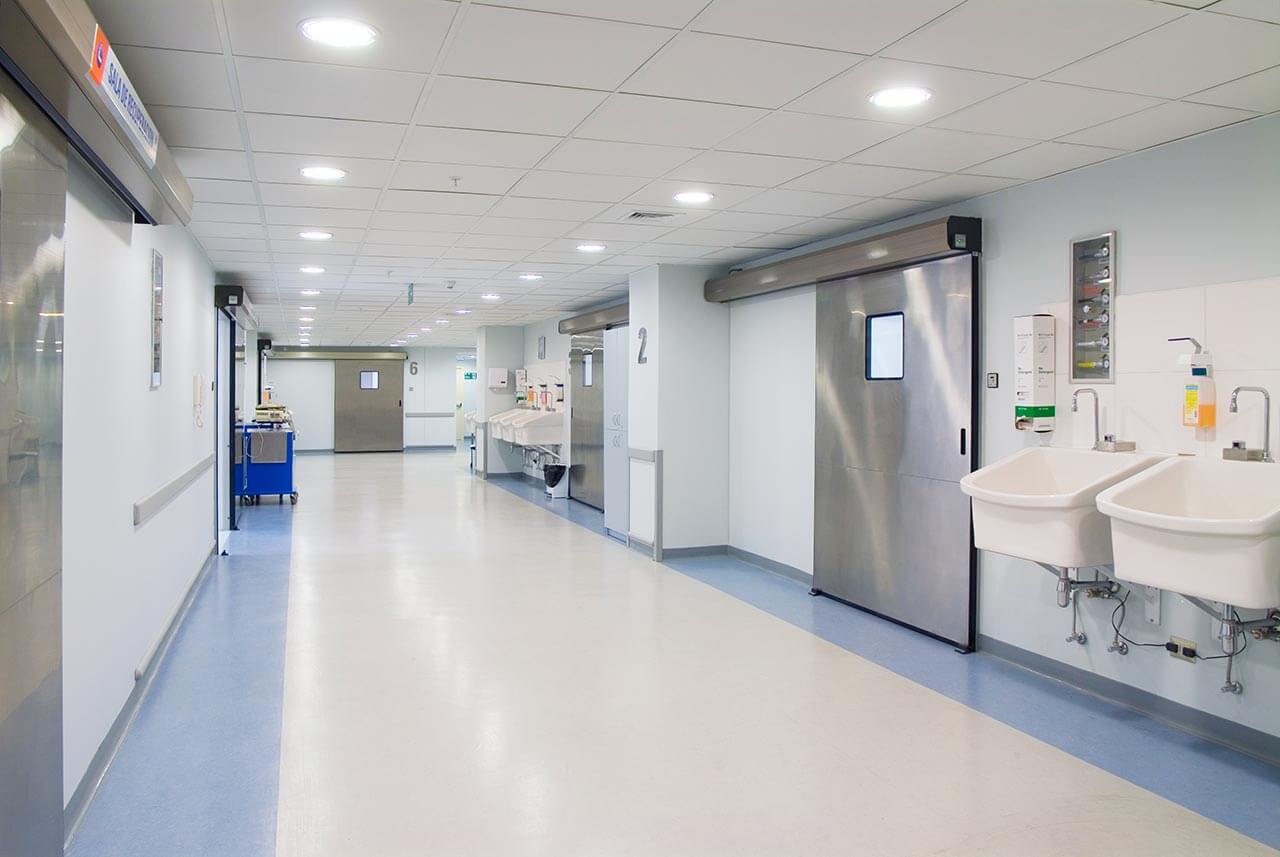
The program includes:
- Initial presentation in the clinic
- clinical history taking
- physical examination
- laboratory tests:
- complete blood count
- clinical urine test
- biochemical blood analysis
- hormonal analysis
- tumor markers
- kidney function test
- indicators of blood coagulation
- pelvic ultrasound
- CT scan (on indication 650 €)
- MRI scan (on indication 1200 €)
- biopsy and histological examination
- nursing services
- consultation of all leading experts
- development of individual treatment plan
- written statement
Required documents
- Medical records
- MRI/CT scan (not older than 3 months)
- Biopsy results (if available)
Service
You may also book:
 BookingHealth Price from:
BookingHealth Price from:
About the department
The Department of Urology at the University Hospital Halle (Saale) specializes in the diagnosis and treatment of a full range of kidney, bladder, and urethral diseases in both men and women, as well as prostate, testicular, and penile pathologies. The department provides both conservative and surgical treatment. The department successfully practices innovative da Vinci robotic surgery and performs laparoscopic and endoscopic procedures. These operations are classified as minimally traumatic, while their effectiveness is comparable to the results of classical open surgery. Doctors of the department, together with specialists in nephrology and transplantology, perform kidney transplants, including from living donors. It should be noted that the medical facility is one of the few in Germany to perform kidney transplants using the da Vinci robotic technology. The priority focus of the urologists of the department is the treatment of cancers of the urinary system and male genitalia. The department is certified by the German Cancer Society (DKG) as a specialized center for prostate, testicular, kidney, and bladder cancer. The exceptional professionalism of the department's medical team, combined with state-of-the-art equipment, forms a solid basis for providing high-quality medical services to patients with urological diseases. The Head Physician of the department is Prof. Dr. med. Georgios Gakis.
The department's team of urologists most often treats oncological diseases of the kidneys, bladder, prostate, testicles, penis, and urethra. Patients are treated in the Center for Urologic Oncology certified by the German Cancer Society (DKG), where urologists, oncologists, radiation therapists, nephrologists, and physicians from other related specialties work hand in hand. Doctors meet weekly in a tumor board to review each clinical case and plan the most effective treatment for the patient. Therapeutic options include all methods available in modern medicine, ranging from surgical resection to systemic conservative treatment. In most cases, surgical resection of the malignancy is the first line of treatment. These surgical procedures are performed using sparing laparoscopic and robotic techniques, which allow for a minimal risk of complications and a rapid postoperative recovery. Surgery is almost always followed by chemotherapy, radiation therapy, hormone therapy, targeted therapy, or immunotherapy.
The department performs many surgeries to treat oncologic diseases using the innovative da Vinci robotic technology, especially radical prostatectomy, the most popular surgery in urologic oncology. The da Vinci device has been available in the department since 2014. These surgical procedures have been performed here for more than 10 years, and the department's physicians are rightly considered to be among the most experienced experts in robotic surgery in Germany. During the surgery, the operating urologist sits at the control panel of the robotic system and gives it commands, which it executes with impeccable precision. The da Vinci robot is equipped with four manipulator arms with built-in miniature instruments. The arms of the robotic device have exceptional maneuverability, allowing surgical manipulations in hard-to-reach anatomical areas while preserving the integrity of small blood vessels and nerve endings. The da Vinci device also has a built-in 3D imaging system that allows the surgeon to view the surgical field in tenfold zooms. Robotic surgery is performed through miniature incisions, which minimizes the risk of life-threatening bleeding, reduces postoperative pain, and speeds recovery. The da Vinci technique is mainly used for patients with prostate cancer: in this case, robotic techniques help to preserve erectile function and eliminate the risk of urinary incontinence, which is almost impossible to achieve with a classic open surgery. The department has also gained extensive experience in performing robotic surgery for the treatment of kidney cancer.
The department regularly admits patients with benign prostatic hyperplasia. This pathology most often occurs in men over 50 years of age. The main symptoms of prostate adenoma are frequent urge to urinate, difficult and painful urination. The choice of treatment tactics depends on the patient's age, health condition, concomitant diseases, severity of symptoms, and degree of prostate enlargement. Early stages of prostate adenoma are usually treated with pharmacotherapy, while advanced stages are treated with transurethral electroresection of the prostate or laser surgery whenever possible.
The department is part of the Kidney Transplant Center, which was founded in 1974. Since its foundation, more than 2,000 kidney transplants have been performed here. The center specializes in kidney transplants from both living and deceased donors. The physicians in the department are highly skilled in living donor kidney transplantation, including with the sparing da Vinci robotic technology. Kidney harvesting is performed laparoscopically, without large incisions in the abdominal wall. The department's specialists work in close collaboration with surgeons at the University Hospital Magdeburg, enabling combined kidney and liver transplants, with plans to expand to include combined kidney and pancreas transplants in the future.
Key areas of clinical practice of the department include the following:
- Diagnostics and treatment of urological cancers
- Diagnostics and treatment of prostate cancer
- Diagnostics and treatment of testicular cancer
- Diagnostics and treatment of penile cancer
- Diagnostics and treatment of kidney cancer
- Diagnostics and treatment of urethral cancer
- Diagnostics and treatment of benign prostatic hyperplasia
- Diagnostics and treatment of urolithiasis
- Diagnostics and treatment of urinary incontinence
- Diagnostics and treatment of other urological diseases
The department's therapeutic options include the following:
- Conservative treatment
- Systemic cancer treatments: chemotherapy, hormone therapy, targeted therapy, and immunotherapy
- Botulinum toxin A injection therapy (for example, for neurogenic bladder and severe functional bladder disorders)
- Extracorporeal shock wave lithotripsy for urolithiasis
- Surgical treatment
- Laparoscopic surgery
- da Vinci robotic surgery
- Endoscopic surgery
- Laser surgery
- Sacral neuromodulation for urinary incontinence
- Living and deceased donor kidney transplantation
- Other medical services
Curriculum vitae
Since 1 April 2023, Prof. Dr. med. Georgios Gakis has been the Head Physician of the Department of Urology at the University Hospital Halle (Saale) and is also a Professor at the Faculty of Medicine of the Martin Luther University Halle-Wittenberg. Previously, he was Senior Physician of the Department of Urology at the University Hospital Wuerzburg and Head of the Section for Robotic Surgery.
The specialist graduated from the Faculty of Medicine at the Eberhard Karl University of Tuebingen and received his doctorate in 2006. In 2011, he was board certified in urology and became a Fellow of the European Board of Urology (FEBU). He completed his habilitation and Venia legendi in 2014. Prof. Georgios Gakis received additional qualification in tumor drug therapy in 2018.
Photo of the doctor: (c) Universitätsklinikum Halle (Saale)
About hospital
According to the prestigious Focus magazine, the University Hospital Halle (Saale) is one of the best medical institutions in Germany!
The history of the hospital goes back more than 300 years, and during this time it has managed to gain an excellent reputation not only in Germany, but also throughout the world. The hospital positions itself as a specialized healthcare facility for the treatment of severe and rare diseases and injuries. The hospital provides medical care to patients of all ages in compliance with the latest scientific achievements. The hospital is distinguished by successful research activities, especially in the field of cardiovascular diseases and oncopathologies – the specialists in these areas have made significant contributions to the development of the very latest diagnostic methods and therapeutic approaches.
The University Hospital Halle (Saale) has 30 specialized departments representing almost all areas of modern medicine, as well as 17 narrowly focused institutes. About 35,000 patients receive qualified medical care of European standards in the hospital every year, and more than 212,000 patients are served on an outpatient basis. This number of patients is evidence of the high efficiency of medical services and the excellent image of the hospital in the international medical arena; patients from all over the world regularly seek medical attention here.
Some of the hospital's structural units deserve special attention. For example, the Central Emergency Department (the largest in Saxony-Anhalt), modern dental clinics, the Perinatal Center, and the Transplant Center, which has a history of more than 40 years. The Transplant Center performs more than 40 kidney transplants annually, most of them from living donors.
Thanks to the use of the latest medical technologies and the availability of state-of-the-art equipment, many previously high-risk surgeries and procedures can now be performed in the hospital using sparing techniques. In this context, hybrid cardiac surgery and robotic surgery using the innovative da Vinci Si® system in urology are worthy of mention.
An integral part of the successful clinical practice of the University Hospital Halle (Saale) is the availability of experienced and competent medical staff. The total number of employees at the hospital is more than 4,450. Many physicians are known far beyond the borders of Germany: they regularly conduct important research that enables the development of modern medicine. In addition, the hospital specializes in training medical students, so qualified doctors and professors are willing to pass on their experience to the younger generation.
The hospital has many quality certificates such as DIN EN ISO 9001:2015 certificate, German Cancer Society (DKG) certificate, JACIE certificate, EndoCert certificate, ClarCert certificate, German Spine Society (DWG) certificate, German Trauma Society (DGU) certificate, CERT iQ certificate, LGA InterCetert certificate, and others.
Photo: (с) depositphotos
Accommodation in hospital
Patients rooms
The patients of the University Hospital Halle (Saale) stay in comfortable single, double, and triple rooms with a modern design. All patient rooms have an ensuite bathroom with a toilet and a shower. The standard patient room includes a comfortable automatically adjustable bed, a bedside table, a wardrobe, a table and chairs for receiving visitors, a TV, a radio, and a telephone. The patient rooms have access to Wi-Fi. For safety reasons, the use of laptops and cell phones is prohibited in some areas, including the intensive care units. The hospital also offers enhanced-comfort patient rooms.
Meals and Menus
The hospital offers delicious and well-balanced meals three times a day: breakfast, lunch, and dinner. Patients and their companions can choose from three daily menus, which always include dietary dishes. If necessary, an individual menu can be prepared for the patient. Children are offered a special menu with healthy and tasty dishes, rich in nutrients necessary for a growing body.
Further details
Standard rooms include:
![]() Toilet
Toilet
![]() Shower
Shower
![]() Wi-Fi
Wi-Fi
![]() TV
TV
Religion
Religious services are available upon request.
Accompanying person
Your accompanying person may stay with you in your patient room or at the hotel of your choice during the inpatient program.
Hotel
Your accompanying person may stay with you in your patient room or at the hotel of your choice during the inpatient program.




